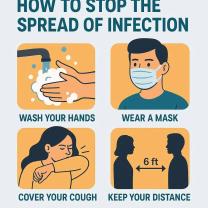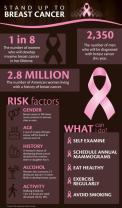Are swollen axillary lymph nodes always serious?
Swollen axillary lymph nodes, or lymphadenopathy, can have various causes and levels of severity. Lymph nodes are part of the body's immune system and can become enlarged or swollen in response to infections, inflammation, or other underlying conditions. Here's a general understanding of the severity of swollen axillary lymph nodes:
1. Mild Swelling:
- Mild, temporary swelling of axillary lymph nodes is often a normal response to minor infections, such as colds, flu, or skin infections.
- It can also occur after vaccinations or as a reaction to other benign factors.
2. Moderate Swelling:
- More noticeable or prolonged swelling of axillary lymph nodes may indicate an ongoing infection or inflammation in the nearby area.
- Common causes can include bacterial infections, viral infections (such as mononucleosis), or fungal infections.
3. Severe Swelling:
- Severe or rapidly progressing swelling of axillary lymph nodes could suggest a more serious underlying condition.
- This might include certain infections, autoimmune disorders, or less commonly, cancerous conditions.
Common Causes of Swollen Axillary Lymph Nodes:
- Infections in the arm, breast, or chest wall
- Skin infections, including abscesses or cellulitis
- Viral infections, such as infectious mononucleosis
- Bacterial infections, including cat scratch disease
- Inflammatory conditions like rheumatoid arthritis or lupus
- Inflammatory breast cancer
- Lymphoma (a type of blood cancer)
- Metastatic cancer (cancer that has spread from another part of the body)
When to Seek Medical Attention:
- If you notice persistent, painless swelling in your axillary lymph nodes that doesn't improve after a few weeks, it's important to seek medical evaluation.
- Seek prompt medical attention if the swelling is accompanied by other concerning symptoms, such as fever, unexplained weight loss, night sweats, or changes in the skin overlying the nodes.
Remember that only a healthcare professional can accurately diagnose the cause and severity of swollen axillary lymph nodes. They will perform a thorough evaluation, which may include physical examination, medical history, imaging tests, and potentially a biopsy if needed. Early detection and appropriate treatment can help manage and address the underlying cause of the swelling.













